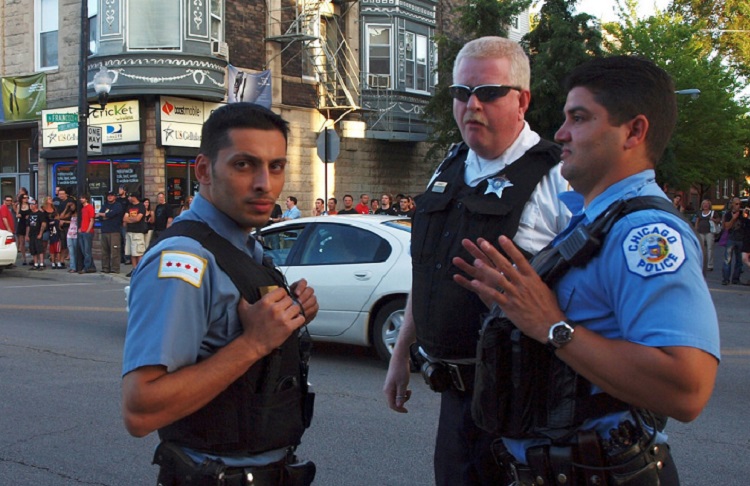
The US’s third largest city has consistently been in the news lately for some of the worst violence the country has seen in recent decades. In an investigation led by CNN, according to the Chicago Police Department (CPD), homicide levels have skyrocketed in the last five years, and at the current rate, they estimate about 550 unjustified killings for the year 2016.
An even more jarring statistic provided by the CPD shows that in the last three years, less than half of 1% of those arrested in Chicago saw an attorney while in custody.
This revelation brings to light potentially serious constitutionality issues and due process concerns in the CPD’s behavior towards detainees.
In response to recent protests, both the local and federal governments have launched investigations into the CPD’s treatment of the people they arrest. Chicago mayor Rahm Emanuel issued a task force to delve deeper into the CPD’s practices, and the resulting Police Accountability Task Force (PATF) Report found startling problems with detainee treatment.
According to the report, the CPD regularly engages in racist behavior, approaching “every encounter with people of color as if the person, regardless of age, gender, or circumstance, is a criminal.” The report also found issues with police accountability, violent escalation, and community relations.
In a similar vein, the US Department of Justice also began an ongoing probe in December 2015 in conjunction with Emanuel’s PATF. Attorney General Loretta Lynch claimed the Department is investigating the CPD’s use of force and accountability, especially if there are racial/ethnic disparity concerns.
The probe began after a CPD officer shot 17-year-old Laquan McDonald sixteen times in October 2041, which began a series of protests in the city that led to the Department of Justice’s civil investigation.
In an interview with CNN, civil rights instructor Charles Jones called Chicago “the false confession capital of the world.” In 1991, Jones claims he was sentenced to twenty years in prison for a crime he did not commit, simply because police officers coached him into confessing to being a “lookout” for a murder case he was not involved in.
He did not have a lawyer present throughout the entire interrogation. Though the CPD declined to issue a statement on his story, statistics show that Jones’ experience is clearly not the only instance of such false confessions occurring.
Maryland DUI defense attorney Angie DiPietro commented, “It is frightening to me how frequently I see in the news a story of an individual wrongly convicted years ago, only to be exonerated now by forensic evidence. False confessions are a critical flaw in our criminal justice system, and steps must be taken to prevent them.”
A thorough overhaul of the system is needed in order to restore arrestees’ constitutional rights and prevent false confessions and convictions from occurring in this violence-ridden city.

You must be logged in to post a comment Login